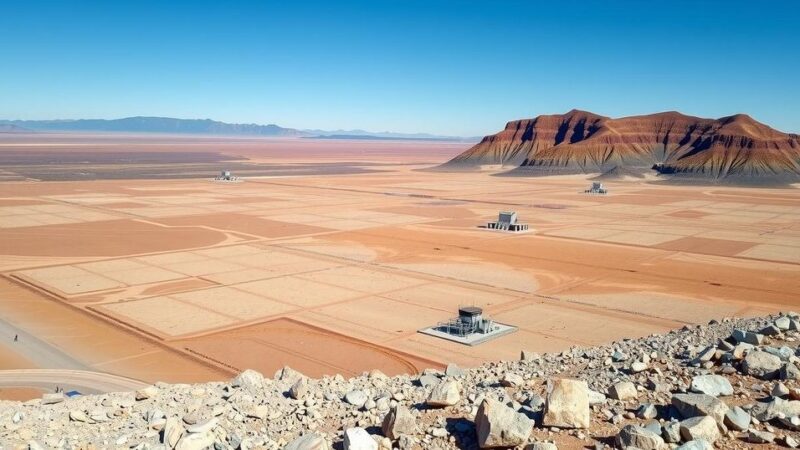The Democratic Republic of Congo is contemplating extending its cobalt export ban to stabilize prices after successful initial measures. The ban may be paired with export quotas and partnerships with Indonesia to manage the cobalt market effectively. The situation illustrates Congo’s strategy to leverage its influential role amidst rising global demand for cobalt in electric vehicles and sustainable technologies.
The Democratic Republic of Congo is considering the extension of its current cobalt export ban, originally implemented in February to address declining cobalt prices. Government spokesperson Patrick Muyaya announced on March 21 that this four-month ban may be prolonged to stabilize a volatile cobalt market.
Congo, a key global cobalt supplier, halted exports to combat an oversupply situation impacting prices. Following this measure, cobalt prices have reportedly rebounded by over 50%. Muyaya highlighted this recovery, attributing it to the export cessation.
To further bolster this strategy, Congo intends to establish cobalt export quotas and collaborate with Indonesia, another major cobalt producer. This partnership aims to jointly manage pricing and supply strategies, leveraging Congo’s influential position in the cobalt market used prominently in electric vehicle battery production.
During a cabinet meeting, Patrick Muyaya conveyed President Felix Tshisekedi’s emphasis on the importance of maintaining the cobalt export ban. “An evaluation will take place at the end of the four-month period to determine if the government should extend the export ban or adopt additional measures,” he stated.
The potential extension of the ban is aligned with Congo’s strategy to navigate the global cobalt landscape amidst rising producer competition and fluctuating demand. Cobalt’s significance in battery production has led the country to reassess its export approaches to enhance profitability while promoting sustainable development.
The Tenke Fungurume mine, a significant cobalt and copper mining site situated 110 km northwest of Lubumbashi, underscores the economic importance of cobalt to Congo. As international companies seek stable cobalt sources, Congo is strategically poised to shape market trends.
In conclusion, the Democratic Republic of Congo’s forthcoming decision regarding the cobalt export ban will significantly impact both local industries and the global cobalt market. With price recovery already evident, industry stakeholders are closely observing developments as the evaluation date approaches.
The Democratic Republic of Congo is at a crucial juncture regarding its cobalt export ban, which has shown positive effects on cobalt prices. The potential extension of the ban, coupled with future strategies such as export quotas and international cooperation, may further stabilize the market and underscore Congo’s pivotal role in the global cobalt supply chain. The outcomes of these discussions will be vital for local and international stakeholders alike.
Original Source: evrimagaci.org






